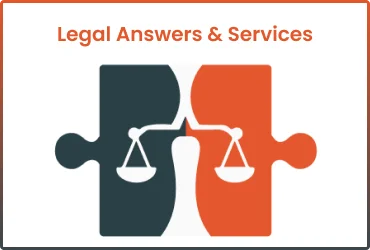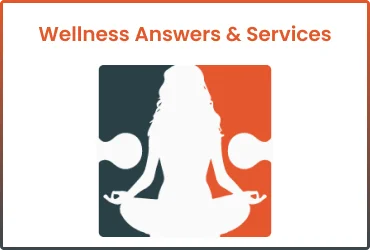Federal Product Warranty Protections For Consumers
Federal consumer protections apply to the sale of consumer products, defined as “any tangible personal property which is distributed in commerce and which is normally used for personal, family or household purposes.”
Two Major Federal Laws Protecting Consumers
Much of the Federal Consumer Sales Law can be found in the Uniform Commercial Code (UCC) and the Magnuson-Moss Act. Both laws provide for the protection of the consumer in their purchase and sale of consumer goods.
The U.S. Congress enacted the Magnuson-Moss Warranty Act in 1975. The Act establishes three basic rules when a seller-warrantor sells its goods to the consumer.
- A seller-warrantor must designate its written warranty as either “full” or “limited.”
- A seller-warrantor must state certain specified information about the warranty coverage in writing and in clear and easy-to-read language.
- A seller-warrantor must ensure that the written warranties are physically attached to the actual consumer products before being sold.
While states may enact their own consumer protection and warranty laws, federal law ensures a mandatory minimum level of consumer protection. However, the states can expand consumer protections as long as they do not limit or restrict federal law.
Federal Product Warranties
The Warranty Must State Its Duration
Most consumers believe that the essential part of a warranty is its duration. The duration is the specific period under which a legal claim may be made under the terms of the warranty.
While the warranty duration is undoubtedly essential to consider, it is not the controlling issue for consumer protection.
Warranty Must Disclose All Essential Terms
Federal consumer protection laws require that if the manufacturer or secondary seller of the product chooses to offer a written warranty, the terms of that warranty must be fully and legally disclosed to the consumer.
Seller Must Disclose Whether The Warranty Is Full or Limited
Federal law requires that any written warranty must use plain and straightforward language. The written contract must also state whether it is a “full” or “limited” warranty.
Full Warranties Demand More Consumer Protection
When a seller offers a “full warranty” on its products, it creates additional value for the consumer; therefore, this added value must mean what it implies – a full warranty, including those that are implied.
Seller Must Repair or Replace
A full warranty must mean the seller promises to repair or replace the product or if it cannot be repaired or replaced, the seller must promptly refund the total purchase price to the consumer.
The Seller Cannot Take Away Existing Rights
A seller that represents to a consumer that the product carries a “full warranty” cannot later impose unreasonable limits to that warranty. Sometimes the law restricts damages and even liability if the consumer does not use the product for its intended purpose.
For example, under the law of implied warranty (discussed below under implied warranties), should a consumer purchase a knife set and decide to stab a neighbor with the knife. The neighbor could not sue the product seller since intentionally stabbing another person is not an intended use of the product.
Warranties That Expressly Exclude Coverage
Exclusions Must Be Clear And Conspicuous
A product seller offering a full warranty is permitted to exclude or limit being held legally responsible for damages arising from the consumer’s own use of the product use to the consumer so long as this fact is fully disclosed on the face of the warranty clearly and conspicuously. It is unlawful for sellers to bury legally required disclosures in a contract.
Should the language in a warranty exclude coverage and that language is unclear or subject to interpretation, the law requires the court to determine there is warranty coverage in favor of the consumer.
If a warranty limits or excludes any form of coverage, the limitations and exclusions must be in unambiguous written form before the product can be sold. If not, the exclusions and limitations will not be enforceable.
Implied Warranties
Warranties That Are Implied
Federal law provides added protection to consumers through the use of implied warranties.
When a warranty is implied by law “for a particular purpose,” it legally means that a reasonable consumer would have expected the implied warranty to cover the purpose for which the consumer used it.
Specifically, even if the seller did not expressly state a warranty, the law states that certain warranties are so apparent to a consumer’s reasonable expectation of what they purchased that no disclaimer or exclusion would release the seller from liability.
Instead, as a matter of law, the warranty is implied by the very fact that the consumer purchased the product.
Example of Implied Warranty
For example, a consumer who purchases a treadmill has a reasonable expectation that the treadmill will not, without warning, unexpectedly and suddenly speed up, causing the consumer to be thrown off the machine. This rule, however, is not absolute. Consider the above example of the consumer’s purchase of a knife set and using the product to stab their neighbor.
Under these circumstances, the consumer is permitted to pursue legal action against the seller and manufacturer of the product based on the legal theories the product was defective in design and warnings. It would make no difference if the injured person was not the initial purchaser of the treadmill.
For example, suppose your neighbor used the treadmill and was injured by a sudden and unexpected change in speed. In that case, your neighbor has the legal right to sue the seller and the manufacturer under the legal protections of the original owner’s implied, limited or express warranty. The law would apply even if the current owner of the treadmill did not purchase the product as new.
Consumer Rights Lawyers
If you have questions or require additional information about your legal rights, consider contacting an online Consumer Rights Lawyer.













